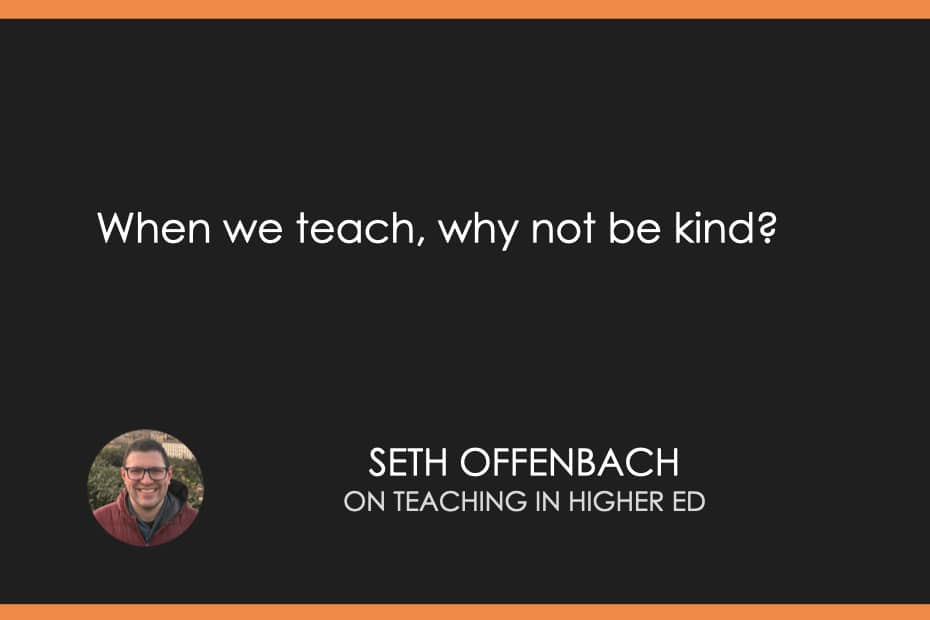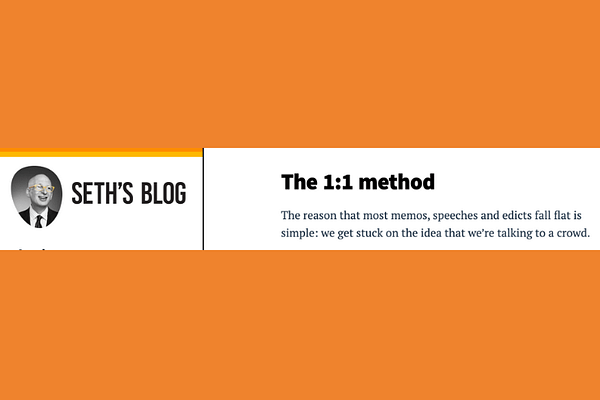Podcast (tihe_podcast):
Play in new window | Download | Transcript
Subscribe: Apple Podcasts | Spotify | RSS | How do I listen to a podcast?
Seth Offenbach shares about his article, Kindness and Community in an Online Asynchronous Classroom, on episode 586 of the Teaching in Higher Ed podcast.
Quotes from the episode

I had to recognize the reality that my classroom was never going to be the number one priority for people during the pandemic.
-Seth Offenbach
When we teach, why not be kind?
-Seth Offenbach
My goal is to challenge my students intellectually. My goal is not to stress them out.
-Seth Offenbach
We all miss deadlines.
-Seth Offenbach
In order to truly be kind, you have to create a safe space for the students where they feel that they can come to you, talk to you and learn with you.
-Seth Offenbach


